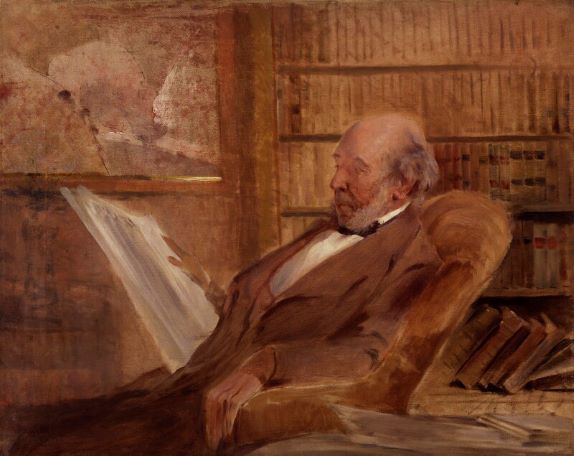Liberty Matters
Spencer and the Truths of Political Economy

Roderick Long came back to Spencer and economics. Both Hayek and Stigler—as I learnt in this conversation from David Levy—considered Spencer an economist. Roderick mentions Spencer’s free-banking credentials, as exemplified by his article “State Tampering with Money and Banks.”[142]
That is a great essay. Spencer argues that “the State can, and sometimes does, produce commercial disasters. As we shall also show, it can, and sometimes does, exacerbate the commercial disasters otherwise produced. But while it can create and can make worse, it cannot prevent.”[143]
Vera Smith, later Vera Lutz, mentioned that work among the very few relevant contributions to the banking debate in England in the 1850s.[144] Smith wrote her dissertation under the supervision of Hayek: but I doubt that she succeeded in having him pay attention to Spencer’s essay. On these issues, Spencer sided with Thomas Hodgskin, his colleague at The Economist for a brief season, who in his Popular Political Economy put forward some powerful arguments on banking and the system of free enterprise.[145]
If Spencer won’t be considered an “economist” strictly speaking, it is true that he held dear the truths of political economy—very much in the spirit of Adam Smith, as David Levy suggests.
For a forceful defence of political economy from Spencer, it is worth quoting, once again,The Study of Sociology:
Knowing that his theory of government and plans for social reformation are discountenanced by it, Mr. Carlyle manifests his annoyance by calling Political Economy “the dismal science.”...That the generalizations of political economists are not all true, and that some, which are true in the main, need qualification, is very likely. But to admit this, is not in the least to admit that there are no true generalizations of this order to be made. Those who see, or fancy they see, flaws in politico-economical conclusions, and thereupon sneer at Political Economy, remind me of the theologians who lately rejoiced so much over the discovery of an error in the estimation of the Sun’s distance; and thought the occasion so admirable a one for ridiculing men of science. It is characteristic of theologians to find a solace in whatever shows human imperfection; and in this case they were elated because astronomers discovered that, while their delineation of the Solar System remained exactly right in all its proportions, the absolute dimensions assigned were too great by about one-thirtieth. In one respect, however, the comparison fails; for though the theologians taunted the astronomers, they did not venture to include Astronomy within the scope of their contempt—did not do as those to whom they are here compared, who show contempt, not for political economists only, but for Political Economy itself.Were they calm, these opponents of the political economists would see that as, out of certain physical properties of things there inevitably arise certain modes of action, which, as generalized, constitute physical science; so out of the properties of men, intellectual and emotional, there inevitably arise certain laws of social processes, including, among others, those through which mutual aid in satisfying wants is made possible. They would see that, but for these processes, the laws of which Political Economy seeks to generalize, men would have continued in the lowest stage of barbarism to the present hour.[146]
Endnotes
[142.] Herbert Spencer, "“State Tampering with Money and Bank.” in Essays: Scientific, Political, and Speculative, Library Edition, containing Seven Essays not before republished, and various other Additions (London: Williams and Norgate, 1891). Vol. 3.
[144.] Vera C. Smith, The Rationale of Central Banking and the Free Banking Alternative, Foreword by Leland Yeager (Indianapolis, Ind.: Liberty Fund, 1990). </titles/1413>.
[145.] For Hodgskin, “Banking, however, let us never forget, with the issuing of bank notes, is altogether a private business, and no more needs to be regulated by meddling statesmen, than the business of paper making.” Thomas Hodgskin, Popular Political Economy: Four lectures delivered at the London Mechanics Institution (London: Charles and William Tait, 1827); </titles/320>.
[146.] Herbert Spencer, The Study of Sociology (London: Henry S. King, 1873); </titles/1335>.
Copyright and Fair Use Statement
“Liberty Matters” is the copyright of Liberty Fund, Inc. This material is put on line to further the educational goals of Liberty Fund, Inc. These essays and responses may be quoted and otherwise used under “fair use” provisions for educational and academic purposes. To reprint these essays in course booklets requires the prior permission of Liberty Fund, Inc. Please contact oll@libertyfund.org if you have any questions.